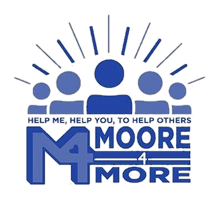The Financial Academy For Youth Program
FAY Description – The purpose of the FAY program is to empower and educate the next generation through comprehensive financial literacy programs. We aim to create pathways to economic opportunities and advocate for wealth-building strategies. Our dedication lies in breaking down barriers and providing accessible resources to youth from diverse backgrounds, equipping them with the knowledge and tools to make informed financial decisions. Ultimately, we strive to empower individuals to achieve financial independence, benefiting themselves and their communities.
Financial Literacy Curriculum for 6th Grade–12th Grade
Overview:
This financial literacy curriculum is designed to empower students aged 11 to 19 with the knowledge and skills necessary to make informed financial decisions and plan for their future. Through a series of interactive lectures, activities, homework assignments, guest speakers, field trips, simulations, and a culminating financial project, students will develop a strong foundation in financial literacy from 6th grade through their senior year.
The Moore 4 More program offers classes twice a week, each session lasting between 75 to 90 minutes, over a period of 9 weeks. In the 10th week, students will present their final projections. To culminate the program, a Skills, Drills, and Dollars Bills ceremony will be held to showcase what the students have learned. At this ceremony, students will receive certificates of completion and awards. Family and friends are encouraged to attend and celebrate the achievements of the students. The event typically lasts 2 1/2 to 3 hours and includes refreshments for attendees.
This comprehensive financial literacy curriculum aims to provide students with the knowledge and skills necessary to navigate the complexities of personal finance and plan for their future. By incorporating a variety of instructional methods and activities, students will develop practical financial literacy skills that will serve them well throughout their lives. Thank you for your participation in this program, and I look forward to seeing the impact it has on your financial well being.
Purpose:
The purpose of this curriculum is to equip students with practical financial literacy skills that they can apply throughout their lives. By covering topics such as money management, banking, credit, budgeting, investing, taxes, career planning, and college financial planning, the curriculum aims to foster responsible financial behavior and empower students to achieve their financial goals.
Education Standards:
- National Standards for Financial Literacy (Council for Economic Education)
- Common Core State Standards for Mathematics and English Language Arts
Objectives:
By the end of the curriculum, students will be able to:
1. Understand the importance of financial literacy and its relevance to personal financial success.
2. Demonstrate proficiency in managing income, expenses, savings, credit, and investments.
3. Analyze financial products and services, such as bank accounts, credit cards, and investment options.
4. Develop and implement effective budgeting and spending strategies to achieve financial goals.
5. Evaluate the costs and benefits of different career paths, including corporate, entrepreneurship, and trade occupations.
6. Navigate the college financial planning process and explore financial aid options for higher education.
Program expectations encompass the anticipated outcomes, objectives, and standards that participants are expected to meet throughout the duration of the program. These expectations serve as guidelines for both program organizers and participants and typically include:
1. Attendance: Participants are expected to attend all scheduled sessions, workshops, and activities unless there are valid reasons for absence.
2. Participation: Active engagement in program activities, discussions, assignments, homework is expected from all participants.
3. Respect: Participants are expected to respect their peers, instructors, guest speakers, and program staff at all times.
4. Timeliness: Participants should arrive on time for all sessions and submit assignments by the specified deadlines.
5. Preparation: Participants are expected to come prepared for each session by completing assigned readings, tasks, or prework.
6. Collaboration: Collaboration and teamwork are encouraged among participants to foster a supportive learning environment.
7. Accountability: Participants are accountable for their actions, contributions, and progress throughout the program.
8. Professionalism: Professional behavior, including appropriate attire, communication, and demeanor, is expected from all participants.
9. Feedback: Participants are encouraged to provide constructive feedback to program organizers and instructors to improve the program’s effectiveness.
10. Goal Achievement: Participants should work towards achieving their personal and program related goals, applying the knowledge and skills gained during the program.
The FAY application link – https://forms.gle/7gbhPkP8SB6FmNDUA


